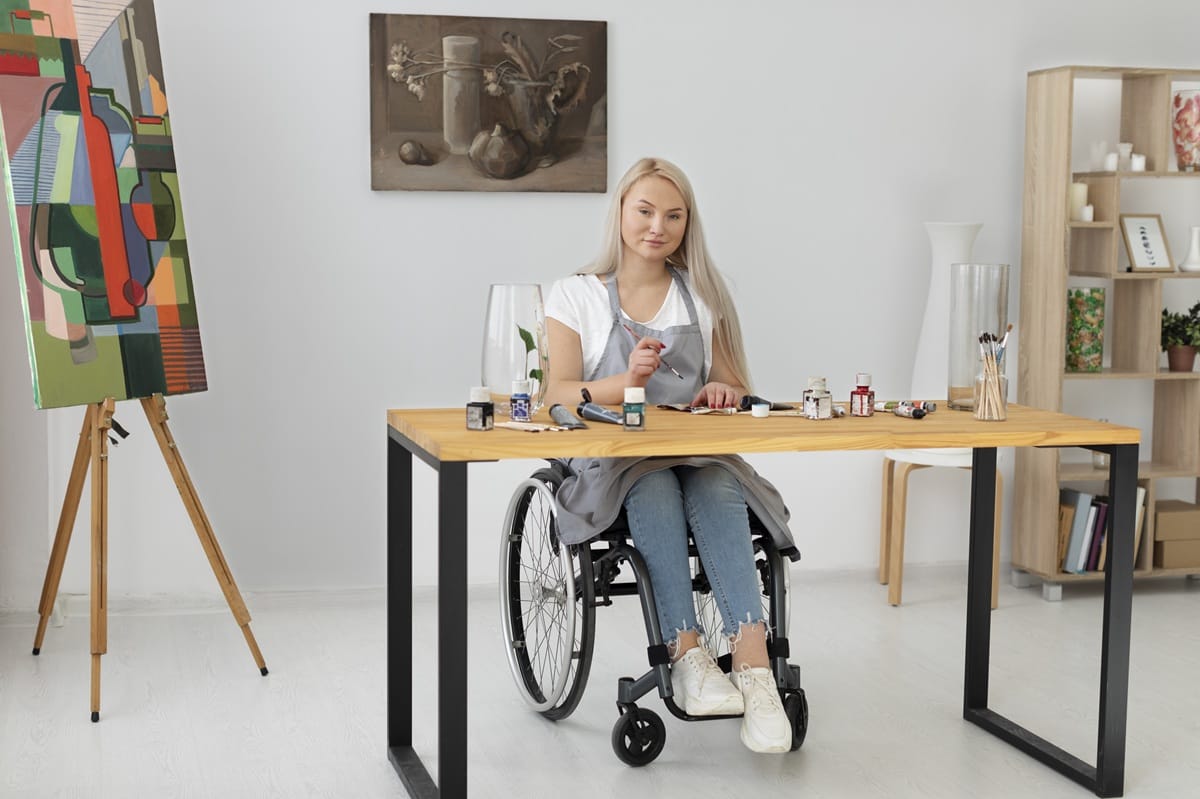Understanding NDIS Supports: What Are Core Supports?
Navigating the National Disability Insurance Scheme (NDIS) can feel overwhelming at times, especially with the different types of funding categories and support options available. One of the most essential yet often misunderstood aspects of the NDIS is the Core Supports category.
If you’ve ever asked, ‘What are Core Supports in the NDIS?’, you’re not alone.
In this guide, we’ll break down the purpose of Core Supports, how they differ from other NDIS funding categories, and how participants, families, and caregivers can make the most of them.
What are Core Supports under the NDIS?
Core Supports are one of the three main support budgets available through the NDIS. The Core Supports budget is designed to help you with everyday activities and needs related to your disability. These supports help you maintain your current level of independence, engage with your community, and manage essential daily tasks.
Put simply, Core Supports fund the types of assistance that help you live your daily life safely and comfortably. They are flexible within the category, meaning you can generally move your budget around between different Core Support sub-categories depending on your needs.
The four Core Supports categories
There are four sub-categories within the Core Supports budget:
1. Assistance with daily life
This category covers support with everyday personal activities such as:
- Personal care (e.g. showering, dressing, grooming)
- Household tasks (e.g. cleaning, laundry, meal preparation)
- Help with getting ready for the day or winding down in the evening
- Supported Independent Living (SIL) if it’s part of your NDIS plan
For many people with disability, these supports allow them to remain in their own home, live more independently, and reduce reliance on family carers.

2. Transport
Transport funding under Core Supports assists participants who cannot use public transport due to their disability. This can include:
- Travel to work, education, or day programs
- Community activities or therapy appointments
- Support worker travel (depending on plan)
NDIS participants receive a set transport allowance based on their individual needs and travel circumstances.
3. Consumables
This includes everyday items you need as part of living with a disability, such as:
- Continence aids (e.g. pads, catheters)
- Low-cost assistive technology (e.g. modified cutlery, non-slip mats)
- Wound care items
- Nutritional supplements prescribed by a medical professional
It’s important to note that while the NDIS funds reasonable and necessary supports, general household groceries and basic toiletries are not included.
4. Assistance with social & community participation
Engaging with your community is a vital part of wellbeing. This category funds:
- Support workers to help you attend social activities
- Community access programs
- Support to build confidence in new settings (e.g. volunteering, joining a club)
- Skill-building through recreational or interest-based activities
The goal here is to support you to participate more fully in community life — not just to get out of the house, but to feel connected, included, and engaged.

How are Core Supports different from Capacity Building or Capital Supports?
The NDIS is designed with three major budget categories: Core Supports, Capacity Building Supports, and Capital Supports. Understanding the difference can help you maximise your plan and funding.
Core Supports
- Focus area: Everyday needs and support with daily living
- Flexibility: Highly flexible within the Core budget
Capacity Building
- Focus area: Skill development and long-term independence (e.g. therapy, training, support coordination)
- Flexibility: Not usually flexible and must be used as allocated
Capital Supports
- Focus area: One-off or higher-cost items (e.g. assistive technology, home modifications)
- Flexibility: Least flexible and requires NDIA approval
Core Supports provide the most day-to-day assistance, while Capacity Building is aimed at building your future skills, and Capital typically covers physical tools or modifications to support your environment.
Who can access Core Supports?
All NDIS participants with Core Supports in their approved plan can access these services. The specific budget and categories you receive depend on your individual plan, which is developed based on your goals, needs, and functional assessments.
Some participants may not receive all four Core Support categories — for example, someone with mobility and transport independence may not be allocated a transport budget.
Your Local Area Coordinator (LAC) or Support Coordinator can help you understand what’s included in your plan and how best to use it.
Examples of Core Supports in action
To help bring these concepts to life, here are a few common scenarios:
- Emma, a young woman with cerebral palsy, uses her Core Supports to fund a support worker who helps her prepare meals, clean her home, and drive her to a local art class each week. These supports help Emma live independently in her own apartment.
- David, who lives with a psychosocial disability, uses social and community participation funding to access a local men’s group with support from a worker who helps him navigate the group environment. This helps build his confidence and social connection.
- Aisha, a teenager with an intellectual disability, uses consumables funding to access continence products and adaptive kitchen tools that help her build independence with meal prep at home.

These examples show how Core Supports are tailored to the everyday — they meet people where they are and help them live life with more ease, connection, and comfort.
How to make the most of your Core Supports Budget
Here are a few tips to get the most out of your Core Supports funding:
Work with a Support Coordinator
If your NDIS plan includes Support Coordination, this service can help you:
- Understand how your Core Supports budget works
- Connect with the right service providers
- Build a flexible, goal-aligned support plan
At St Jude’s, our Support Coordinators work alongside participants and families to ensure your funding is being used effectively and that you’re supported every step of the way.
Choose flexible service providers
Not all service providers offer the same level of responsiveness and flexibility. At St Jude’s, we understand the importance of tailoring support to your lifestyle, culture, and goals.
Whether you need personal care, transport assistance, or help to participate in the community, our team works with you, not just for you, to ensure the support you receive is empowering and dependable.
Review your plan regularly
As your goals and circumstances change, so might your support needs. It’s important to:
- Track how your supports are being used
- Identify if certain categories are under- or over-used
- Discuss changes with your LAC or Support Coordinator
If your Core Supports budget no longer aligns with your needs, you may be eligible for a plan reassessment — especially if you’ve had a change in situation.
To read more about a change in situation, have a read of our blog ‘Navigating NDIS Change of Situation: How to Keep Your NDIS Plan Relevant to Your Support Needs and Goals’.

How St Jude’s supports NDIS participants with Core Supports
At St Jude’s, we offer a wide range of disability support services aligned with the NDIS Core Supports budget, including:
- Personal and domestic assistance: Support workers who help with cleaning, cooking, dressing, grooming, and toileting
- Transport assistance: Travel to appointments, day programs, or community events
- Community Participation programs: One-on-one or group activities designed to support confidence, independence, and inclusion
- Access to consumables: Through assistance in purchasing and managing low-cost items related to your disability
- Support Coordination: To help you navigate your plan and connect with the right services
Our services are person-centred, flexible, and culturally responsive — designed to fit into your life, not the other way around.
Core Supports are the foundation of everyday independence
Core Supports are the building blocks of daily independence, choice, and participation.
These supports are designed to make life easier — whether that’s getting dressed in the morning, attending a community event, or simply feeling confident to live life your way.
If you or a loved one is navigating the NDIS and would like help understanding or accessing Core Supports, we’re here for you.
We’re here to walk alongside you in your NDIS journey, with experience, compassion, and practical support.
Contact us today to find out how St Jude’s can help you make the most of your Core Supports budget.